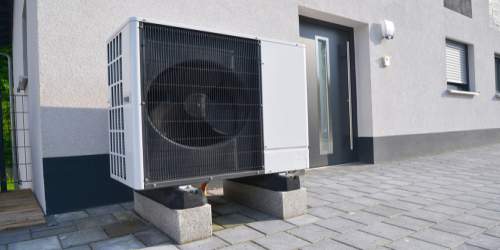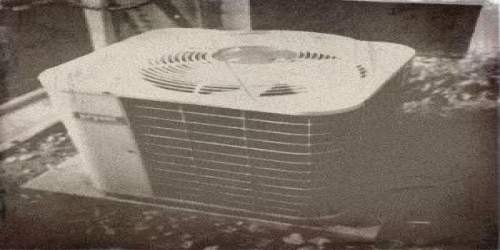Read Time : 3 Minutes
Heat Pump Minimum Outside Temperature
Investing in a heat pump could be one of the best decisions you ever make. After all, they are incredibly cost effective, energy efficient, and they produce far less emissions than conventional forms of heating. While the initial costs for purchase and installation can seem a little intimidating at first, there are some great government schemes available, and you are sure to make some great savings on your energy bills. It is important to know as much as possible about heat pumps before you go to purchase them, and this page will take you through the minimum outside temperature in which they can operate efficiently.
The Best Weather for Heat Pumps
It should be noted that the optimal climate for heat pumps are ones that are warm or moderate. This is because the pumps work by extracting the heat from the surrounding air and converting it into energy. So, the warmer the climate, the more heat can be extracted. Of course, the fact that heat pumps can be used as forms of central heating and air conditioning also comes in pretty handy. Some heat pumps are able to function better in colder climates than others, something which should be kept in mind. The air source heat pump is less likely to function efficiently in colder weather because of the exposed piping. As a result, the heat pump will need to work extra hard in order to remove any ice that has formed in or outside of the system. On the other hand, ground source heat pumps will tend to work effectively in cold weather because they have been buried underground where there is a constant supply of natural warmth. If your heat pump system is not able to get enough warmth from the surrounding air, a supplementary system will need to be implemented to keep things going. While this can lead to an increase in your energy bills for a short period of time, you will have a form of backup heating that can pick up the slack when the air source heat pump starts to lose efficiency. Air source heat pumps are much more at risk of inefficiency in cold weather due to the exposed piping, especially when compared to the concealed ground source heat pumps. In the next section, the reason for the loss of efficiency found in air source heat pumps during cold weather will be further explained.
COMPARE PRICES FROM LOCAL INSTALLERS
Compare prices from local companies fast & free
Enter your postcode to compare quotes from leading professionals. We promise to keep your information Safe & Secure. Privacy Policy
Why Air Source Heat Pumps Lose Efficiency in Cold Weather
The amount of heat that an air source heat pump is able to transfer to your home is quite largely reliant on the outdoor temperature. As this starts to drop, the overall heat output of the air source heat pump does so with it. The heating capacity of the air course heat pump will also tend to decline as the outside temperature decreases. The air source heat pump is typically sized to be able to provide heat for 80-90% of your annual requirements. When the temperatures are above freezing, it should be able to fill 100% of the heating requirements for your household. As a result, it is highly recommended that you invest in a form of backup heating that is readily available for when the outside temperature drops. This way, it can pick up the slack when your air source heat pump starts to decline in power and efficiency. If you don’t want your home hooked up to the gas mains, electric mains, or other forms of conventional heating, you can purchase metal canisters that are filled with gas. These can be used in faux fireplaces and other containers to heat your home. These tend to have low costs and are also able to back the air source heat pump up nicely.
The Minimum Temperature Requirements for Heat Pumps
This is not always a simple question to answer. The minimum temperature at which a heat pump can operate efficiently can vary according to the quality of the pump system you have installed. For brands and models that are at the lower end of this, the temperature at which the unit is no longer able to extract heat efficiently tends to be around -10 to -15 degrees Celsius. For the brands and models that are towards the higher end, you can expect the efficiency to stop at around -18 to -22 degrees Celsius. You may even be lucky enough to find models that will remain efficient up to -25 degrees Celsius. However, with systems that fall into this category, it is important to note that they usually use an auxiliary heater in order to maintain its ability to create heat. So, while this allows the pump to continue working to heat your home, it is not a cost-effective option. Of course, this is more in reference to air source heat pumps than ground source ones. This is because the former of the two is installed outside where it is exposed to the air and elements. The latter is fitted underground, where is it safe from frost and freezing temperatures, but also where it is surrounded by the natural warmth the ground produces.
Want to Know More?
Have you found yourself interested in heat pumps? If you want to know more then make sure you head to our Renewable Shop where you can find our full range of products, each with the relevant information. Or simply give us a ring using the number at the top of this page and have a chat.
Find a local installer
Welcome to the biggest directory of UK renewable energy companies





 How does a Heat Pump Work
How does a Heat Pump Work








